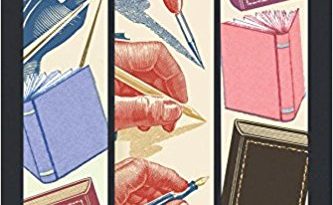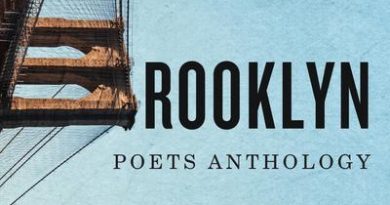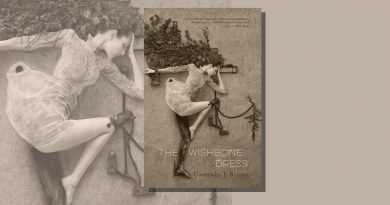Analog by John Gosslee
– Reviewed by Deirdre Hines –
Many poets are interested in how our perceptions of reality are allied to our conception of the world. The front cover of Analog offers the reader/viewer a foretaste of these perceptions in the interplay between the pun of the title and the book’s cover image. One definition of ‘analog’ is something that bears an analogy to something else, and there is a correlation with poetry here, in that poems often serve as analogies of important life events or moments. Indeed analogy, in the form of simile, is the dominant stylistic feature of the twenty-five poems here. My personal favourite is in the opening poem, ‘MY BODY IS A SYSTEM OF ENLIGHTENMENT’. All of the titles in this collection are written in upper case. They have the appearance of billboard signs, but the messages they send are in direct contrast to their materialist mantra. Instead they offer entry into a meditative, Zen-like zone.
What if the gods of whatever
come to my house and test me,
but look like a blue jay dive-bombing robins
as they feed in the yard?
The matrix is not as it appears to be, then. This poem takes the form of five couplets, in which the poet calls the reader back to prelapsarian innocence through imagination.
Angels put their hands on my shoulders
and hold me in place
His wings won’t open, and in the final four lines the poet strokes the bird-hunting cat with his hand. The cat’s purr is ‘like a little earthquake ready to swallow the whole world.’
Like Blake, Gosslee attempts to redeem a fallen world through the imagination. Unlike Blake, he lives in a digital world, where surveillance is predominant, where everyone is connected but disconnected from their bodies, and where meaning is ascribed rather than experienced. Each of these poems is itself a little earthquake, a small temenos from which an underground of resistance to one norm is unearthed. Small wonder then that the dominant motifs are birds (cardinals, pigeons), wings, angels, trees, flames, water, stars, and hands. All well-worn images, but the angle from which he views them makes them more ‘like a sentence lifted into the air’ (‘HOW I FEEL IN THE LIGHT IS A FICTION’).
The human voice in air is an analog signal, unlike the photo-booth images of the poet in four black and white strips, one strip of which is erased, gracing the front and back cover. These are a product of digital technology. This gap between image/body, text/language, and experience is one that many of Gosslee’s poems explore, and in these gaps new perceptions are formed, with echoes of Whitman’s ‘I sing the body electric’, Blake’s Songs of Innocence and Experience, surrealism and postmodernism. However, Gosslee ultimately echoes the new counterculture, a counterculture that resists the impersonality of modern America. These poems predominantly explore the nebulousness of the ‘I’, populated by cipher-like figures: the bartender, librarian, waiter, businessmen, stranger, and the astronomer. In ‘I’M IN A MOOD THAT NO SONG FITS’, the ‘I’ that is ‘the small orbit of the body’ of the poet is also a ‘tree on the bank/ of a rising river’, and his dirt-shovelling hands ‘go downstream’. The poet realises that ‘what stays knows it is never over’. This counterculture is like a food combined with additives, a lack of self knowledge and awareness, a refusal to embrace the natural world, and a tendency to see the image of an ocean as the ocean, rather than the ocean itself.
An Image of the ocean is not the ocean
it feels like in your hand
(‘WILL ME, THE OCEAN SAID TO THE SUN AND MOON’)
The animal bones stacked to his waist are ‘like books in the hallway/ no one knows how to read’, unlike the letters that he and his lover miss each other in (‘DAY OF LOST THINGS’). Loss of love, loss of relationship with a world ‘clothed in taxes’, points to the darker side of experience. When Blake asked ‘What the hammer?..’, Goslee’s reply centuries later is:
I hear the key card click in the slot,
the ice crack when it hammers the glass
Culture dies when it refuses to question itself, and Gosslee is in the vanguard of poets who question culture’s underlying assumptions, without over-egging the pudding. This approach makes these lines in ‘NAMING BIRDS’ all the more stark-
It’s a wake-up-and-watch-the-police-
shoot-an-unarmed-body kind of morning.
Lines like these send ripples down the spine, allowing the reader to imagine the frisson of tension in American culture. The system that produced the language that we use is a flawed chimera, according to Gosslee. In ‘THE BEACH IS A RINGING BELL’, he refers to erasure poetry in the opening three lines:
I black out words in a book
to make it say what I want it to read
Unlike erasure poets that give a new set of meanings to an existing text in their choice of blanks, Gosslee discards received meanings altogether, as he repairs cracks in the ocean of ‘words that outlived their speakers’. Fascinating.





